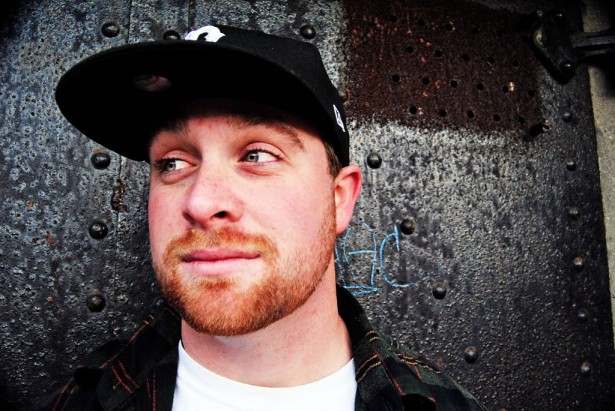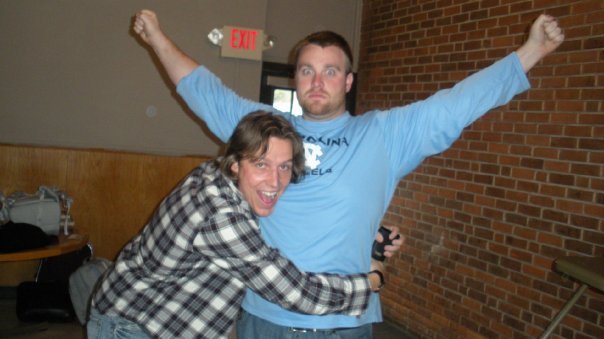On this day we’d like to continue the tradition of honoring a friend we lost – Nate Henn, a man who gave his time to Invisible Children’s mission. Nate passed away in a terror bombing in Kampala, Uganda, three years ago today.
We wanted to share some words from another former Roadie Tyler Dunning, who was lucky enough to be one of Nate’s best friends.
++
Beyond the outlandish video games I played as a teenager, I know very little about necromancy. Despite this, however, every July I try to raise the dead. There are no incantations, no witches’ brew, no charms or enchantments. My sorcery simply consists of revisiting photos and videos of a man who passed away before his time. Occasionally there are human tears involved, but more commonly there are just phone calls to others who knew him—Nate Henn, my target of resurrection.
Now the goal in this practice isn’t necessarily summoning the undead. I decided against this because Nate would make a terrible zombie—terrible in that he would be completely incapable of harming another living thing on this planet. Every cell of Nate’s being was infused with kindness—unapologetic, abject kindness. And this kindness emanated, seeped, and infected anyone who made his acquaintance.
Nate was my best friend and because of this I am quite comfortable making zombie jokes about him—he was the ultimate joker himself. But as close as I was with him, I can’t combat time. It has been three years since his passing; memories are beginning to fade. To an even more disconcerting level, I often question if my remaining memories are even accurate. My idea of Nate now gets wrapped up in the remembrance of others—people who may have spent less time with him or never met him at all.
So this is why I raise the dead—necromancy each year on my solstice of sorrow—to enliven these fleeting recollections. And, when my witchcraft actually works, I remember this to be true: Nate was a goofball, charismatic, caring, a pillar, a cornerstone, a friend to all, a brother to many. Nate was one of a kind. But more importantly, he was one of our kind.
I now invite you to read the words of my friend, Jedidiah Jenkins. I invite you with the assurance that these words are not a hollow formality of deference to the deceased. This is the Nate I knew, the hero I learned kindness from. This is the Nate I will be reviving for all my Julys to come. The Nate I hope to one day tell my children about.
– Tyler Dunning
++
Jedidiah Jenkins // How Heroes are Made: Remembering Nate Henn
Originally posted on 07/23/2010 in Sojourners
Heroes are not made in the warm hallways of cul-de-sac safety. Nor are they made of black and white print from the critic’s air-conditioned desk. They are made on the tragic sidewalks of the world’s lost promise, against the palace walls built on bones, and on rugby fields as a citizen of the world.
The Invisible Children community lost a hero almost two weeks ago. A terrorist bomb ripped through a crowd of civilians in Kampala, Uganda as they watched the final match of the World Cup. The rugby field where they had gathered became a gruesome crime scene, with 76 lives lost in the explosion. One American, 10 internationals, and 65 Ugandans were killed. Per usual, it was the American’s death that received the most media attention. The bombings were intended to send a message of horror and revenge to Uganda’s leaders. From our end, the message was as plain as the grief we carried: a hero’s life had come to an end; but more, the effect of his living was set ablaze like fire in a drought-sick field.
That fallen hero was Nate Henn, a long time Invisible Children volunteer and freedom fighter for child soldiers. We were all stunned, frozen in mourning, and then comforted by the profound medicine of strong community and the transcendent faith of the Henn family. For those of you who aren’t familiar with Invisible Children, we are an organization that actively pursues the end of Africa’s longest running conflict through the arrest of rebel leader Joseph Kony, the release of his abducted child soldiers, and the reconstruction of the war-affected region (constituting primarily Northern Uganda, but including northern Congo, C.A.R., and South Sudan).
Nate had worked with us for one and a half years, without pay, and without seeing the land or people for whom he fought. He traveled the U.S. speaking at colleges, high schools, churches, anywhere, about the atrocities being committed by the LRA (Kony’s rebellion). In February of this year, Nate hit the road with a young man named Innocent from Northern Uganda on an Invisible Children roadie team. They traveled New England together, sharing Innocent’s story of survival and strength. The two of them became like brothers. Their friendship manifested the very dream of Invisible Children: a collision of two opposite worlds, a triumph of the human connection no matter how wide the gap of experience, environment, or circumstance. That idealistic belief that an American life and a Ugandan life are equal in value and each has a wealth of culture and perspective to share with the other. Following this tour, Nate made it his dream to meet Innocent back in Uganda and see the soil he had labored to set free.
After one week on the ground in the Uganda, by Innocent’s side, the terrorist attack on July 11th took Nate’s life.
There is a discrepancy in world attention: When a young American is killed by terrorists on African soil, it is news. When 65 Ugandans are killed beside that American, it barely makes it in. When hundreds of adolescent children are kidnapped in the lost forests of northern Congo, it is not news at all. Now, I know that American media cares about American death, and if the Democratic Republic of Congo had an advanced westernized media system, they would probably cover these abductions with outrage. I also understand the logical progression of a world that would follow the actions and concerns of its most powerful nation. But the fact never ceases to jar me: if 150 children were abducted from their homes in a small town in Oregon, forced to burn their families, and marched into the forest to live as bloodthirsty fugitives, the entire planet would stop spinning until this nightmare was stopped.
This idea of global citizenship, that we are all part of a human brotherhood, and when a Congolese or Ugandan child falls victim to outrageous crime, the whole global community should rally to protect and condemn, is a huge motivating factor in the work that we do. And this global citizen found its face in that of Nate Henn. He saw his friend Innocent as his brother; he saw the people of Northern Uganda as his people (not to the exclusion of his American identity, but to the inclusion of theirs); and he saw his life as a canvas on which to paint this new belonging.
We at Invisible Children hope for a day, as we know Nate did, that every life lost in such an attack would be equally valued, equally mourned. That abducted children in Chicago and the Congo would be pursued to safety with equal swiftness.
Intuitively we all know that contrast provides the pendulum by which we respond. It is darkest before the dawn. Our weakest moment sets the stage for the triumph of bravery or the brilliance of kindness. The loss of Nate really shook us at Invisible Children. We were forced to reconcile the bravado of our speech when we preach ‘Jump first, fear later’ and ‘If one American dies, it’d be front page news.’ But this dark mourning has given us a brighter sunrise. Nate’s example, fearless identity, and heavenly citizenship have exemplified our vision for a better world and instinctively doubled our efforts in the pursuit of it. Within this pain and loss we find the strength and stamina of purpose and the immediacy of our world’s groan for justice. And while his death provides another example of our media’s bias toward American value, it has also given us a platform to call attention to this very fact. It is as though Nate planned it himself.
At a memorial service on Mt. Soledad in San Diego, California, Nate’s friend Eugene quoted “Perfector,” a song by My Epic. It reads, “Death is just a hook behind the door where I’ll leave my dirty clothes.” The truth of that lyric resonated deeply in me, and thanks to Nate, those clothes he left on the floor have served as a catalyst, a reminder that our citizenship is not bound by borders, but let loose in a Kingdom.
Nate, you are missed. Blessed are the peacemakers.
++
Learn more about Nate and his impacting legacy [HERE].


Think people should hear about this?